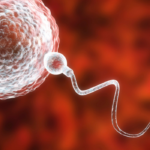Introduction:
In the realm of healthcare, Ayurveda stands out as a holistic and time-tested system that addresses not only the symptoms but also the root causes of various ailments. When it comes to gynecological disorders, Ayurveda offers a unique perspective that emphasizes balance and harmony within the body. Let’s explore how Ayurveda approaches gynecological health, providing women with natural and sustainable solutions.
Understanding Ayurveda:
Ayurveda, the ancient Indian system of medicine, is built on the principles of balance and harmony. According to Ayurvedic philosophy, the body is composed of three doshas – Vata, Pitta, and Kapha – which represent different combinations of the five elements: earth, water, fire, air, and ether.
Gynecological Disorders in Ayurveda:
Ayurveda views gynecological disorders as imbalances in the doshas, leading to disruptions in the normal functioning of the female reproductive system. Common gynecological issues, such as menstrual irregularities, polycystic ovarian syndrome (PCOS), and uterine fibroids, are seen as manifestations of doshic imbalances.
Holistic Approach to Women’s Health:

Diet and Lifestyle:
Ayurveda places great importance on maintaining a proper diet and lifestyle to keep the doshas in balance. For women’s health, this includes consuming nourishing foods according to one’s predominant dosha, practicing regular exercise, and maintaining a daily routine that aligns with natural circadian rhythms.
Herbal Remedies:
Ayurvedic herbs play a crucial role in managing gynecological disorders. For example, herbs like Shatavari are known for their hormone-balancing properties, promoting overall reproductive health. Ashoka and Lodhra are often used to address menstrual irregularities and improve uterine health.
Yoga and Meditation:
Stress is considered a significant factor in the development of gynecological issues. Ayurveda recommends incorporating yoga and meditation into daily life to reduce stress and promote mental well-being. Specific yoga poses, like the Butterfly Pose (Baddha Konasana) and Child’s Pose (Balasana), can be beneficial for reproductive health.
Ayurvedic Therapies:
Panchakarma, a set of purification and detoxification procedures, is often employed to restore balance in the doshas. Specific therapies, such as Uttar Basti (vaginal oil treatment) and Yoni Pichu (tampon soaked in medicated oil), are utilized to address reproductive health issues directly.
Menstrual Hygiene and Practices:
Ayurveda emphasizes the importance of maintaining proper menstrual hygiene and adopting healthy practices during menstruation. This includes avoiding strenuous physical activities, maintaining emotional balance, and following dietary guidelines to support the body during this natural process.
Conclusion:
Ayurveda’s holistic approach to gynecological disorders offers women an alternative and complementary path to conventional medicine. By addressing the root causes of imbalances and promoting overall well-being through diet, lifestyle, herbal remedies, and therapeutic practices, Ayurveda empowers women to take control of their reproductive health in a natural and sustainable way. As always, it is essential for individuals to consult with qualified Ayurvedic practitioners for personalized guidance tailored to their unique constitution and health needs.





